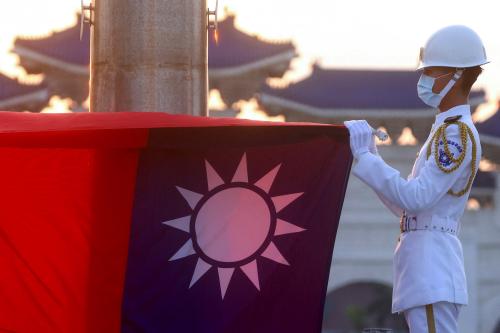

3:00 pm EDT - 4:00 pm EDT
Past Event
3:00 pm - 4:00 pm EDT
1775 Massachusetts Ave NW
Washington, D.C.
20036
What challenges and risks do Chinese and Russian bases pose to the United States’ military strategy? How do the great powers’ military postures interact and with what consequences for regional and global security? In their latest edited volume, “Great Power Competition and Overseas Bases: Chinese, Russian, and American Force Posture in the Twenty-First Century,” Andrew Yeo and Isaac Kardon examine the emerging dynamics of geostrategic competition for overseas military bases and base access.
On September 19, the Center for Asia Policy Studies and the Strobe Talbott Center for Security, Strategy, and Technology at Brookings hosted Yeo, Kardon, and two contributors to their edited volume to discuss key findings and evaluate the implications of overseas bases in great power competition. Brookings Foreign Policy Director of Research Michael E. O’Hanlon delivered welcoming remarks.
Online viewers can submit questions via e-mail to [email protected] or via Twitter/ X using #OverseasBases
3:00 pm - 3:05 pm

3:05 pm - 4:00 pm



Moderator


Richard C. Bush
September 16, 2024
2024
Online Only
3:00 pm - 4:00 pm EDT

Ryan Hass
September 1, 2024